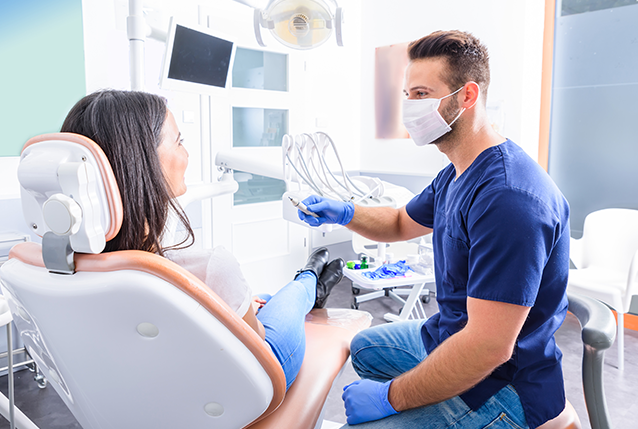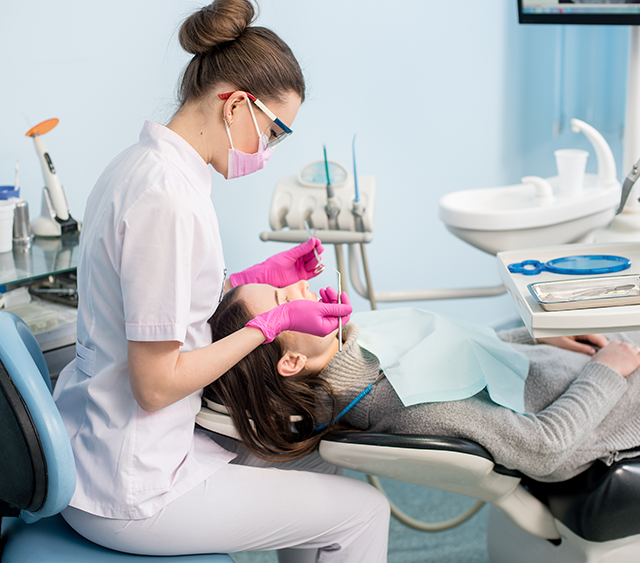If you’re experiencing dental pain, it’s crucial to see a dentist as soon as possible. At Thousand Smiles, we understand how severe dental pain can disrupt your daily activities. Our experienced and compassionate team is committed to providing prompt and effective care to relieve your pain and address the underlying cause.
Our facility is equipped with state-of-the-art technology, and our dentists are skilled in handling a variety of dental emergencies. We will assess your condition, provide immediate relief, and develop a treatment plan tailored to your specific needs.
You don’t have to endure the discomfort and anxiety that come with dental pain. Please don’t hesitate to contact us at 020 8050 0280 and let us help you restore your oral health and comfort.

If you experience tooth pain, your first concern will be getting treatment to stop the pain as soon as you can. However, determining the cause of your pain is necessary. Whenever you experience pain, it means your body is trying to send a message to your brain informing it of an issue.
Experiencing dental pain is a sign that something is wrong, and it’s important to identify the issue and treat it immediately.
Oral pain may be due to several dental issues, such as infected gums, tooth decay, fracture, an abscessed tooth or damaged filling. These dental issues may cause more complications if untreated.
Possible complications include losing the tooth or supporting bone and spreading the bacterial infection to other body parts, resulting in sepsis and hospitalisation. Getting emergency dental care when experiencing the following symptoms caused by an abscessed tooth is necessary to prevent complications.
Irrespective of what causes dental pain, a visit to the dentist for a thorough examination is important.

If your toothache isn’t a result of a severe underlying dental issue, you can try the following remedies for tooth pain relief while you wait for your appointment with the dentist.
There are two common options for minimising or stopping toothache. The first is trying to reduce the inflammation, and the other option is to stop the signal sent to your brain from the injury.
You can reduce the inflammation with a cold compress by placing a cold pack or a bag of frozen vegetables on the affected part of your face for about 20 minutes. Ensure you wrap the cold pack with a piece of cloth to prevent damaging your skin. Using a cold compress will reduce the discomfort and pain.
Anti-inflammatory medications like ibuprofen reduce swelling and pain. You can take it every few hours, as directed on the label and still take the medication when you’ve had a little relief to prevent the inflammation and pain from worsening.
Another alternative is acetaminophen, but this isn’t an anti-inflammatory medication.
Besides the anti-inflammatory medication and cold compress, other natural options for reducing toothache are available. Rinsing your mouth with warm saltwater can provide temporary pain relief and clean the infection. It may also reduce inflammation and heal the wound in your mouth if you don’t swallow the water as you rinse your mouth.
You can place a hot pack on the affected area of your jaw to alleviate discomfort resulting from toothache. If you can’t get a hot pack, you can make one by filling a clean sock with rice, tying it at one end, and then placing it in a microwave to heat for a few minutes.
The heat will help block the pain signal your mouth sends to your brain.
Recent studies have suggested that acupressure can help reduce toothache because it triggers the release of endorphins in the body that aid in pain reduction. Applying acupressure on certain parts of the body alleviates oral discomfort.
However, research properly before trying acupressure for toothache relief.
Peppermint bags have a mild numbing effect, which is effective for relieving oral pain for a short period. Some people prefer cooling the peppermint tea bags in the freezer before using them, and others place the warm bags in the affected area.
The feeling is often pleasing and may help you relax, taking your mind off the toothache.
Most people use garlic for its medicinal properties, such as its pain-relieving and anti-bacterial properties. Blend a clove of garlic to get a sticky paste and apply it on the affected area, or chew the garlic and spit it out after some time to relieve your pain.

Guava mouthwash has antimicrobial and anti-inflammatory properties, which are useful in reducing pain and sterilising wounds. You can boil the crushed guava leaves in water for guava mouthwash or chew fresh guava leaves.
Many people use clove oil to treat dental pain. This oil reduces oral pain and inflammation. It contains a natural antiseptic called eugenol which sterilised mouth wounds. Soak a clean cotton ball in a small amount of clove oil, dab it on the inflamed area or dilute the oil with some drops of water.
Thyme contains antioxidants and other compounds with antimicrobial properties. You can use thyme for toothache alleviation by putting a few drops of thyme essential oil in water to make your mouthwash. You can also soak a small cotton ball in the thyme mouthwash and dab it on the affected area.

When you visit your dentist for toothache pain, our dentist will examine your teeth, review your medical history and ask you questions concerning the toothache, such as when the pain started, what worsens or relieves it, where the pain occurs, and its severity.
Our dentist will examine your gums and other oral areas and conduct an x-ray with other tests to determine the cause of the toothache. You can get the right treatment when the dentist diagnoses the cause of your ache.
If your toothache is because the nerve in a tooth is infected, a root canal treatment will be necessary. For infection in the affected area, you will get antibiotics, lasers, and other treatments for pain and inflammation reduction.
The severity of the underlying condition will determine if you need immediate treatment or wait for a couple of days after the exam. Regardless, you will get pain medications for the discomfort.
Preventing any dental condition, including toothache, is better than managing and treating it. A good oral hygiene routine will reduce the risk of dental health issues that can cause toothache. Ensure you brush your teeth at least twice every day and floss daily to keep your mouth clean.
Ensure you have a balanced diet and avoid sugary and sticky foods. Chewing hard foods can damage your teeth and cause tooth pain. Ensure you visit the dental clinic regularly for cleaning and check-ups.
Identifying any dental issue early will ensure you get treatment before further damage and toothache occurs.
If you experience toothache and need treatment to alleviate the pain and treat any underlying condition, call Thousand Smiles on 020 8050 0280 for an appointment or visit our clinic today.